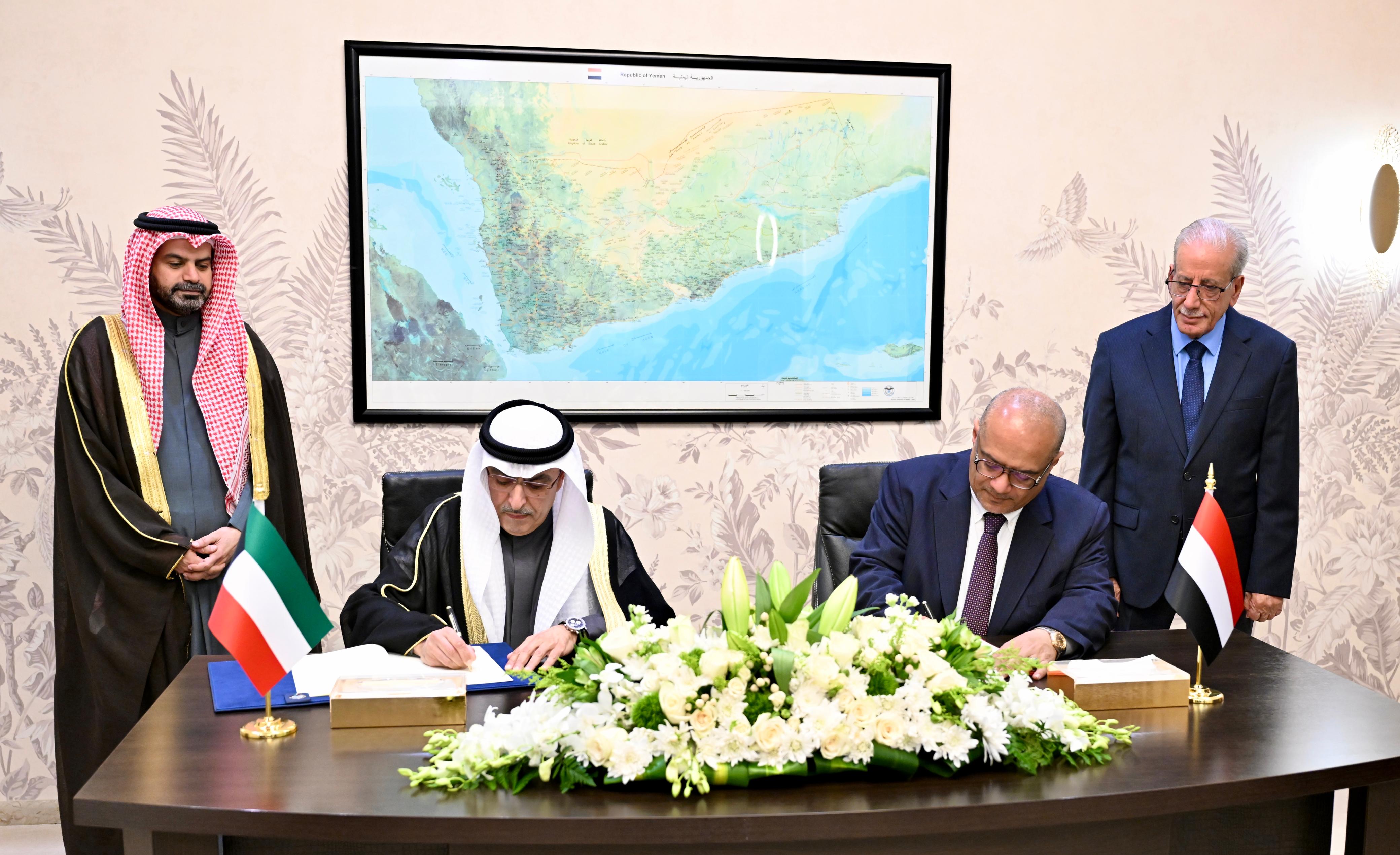
The bilateral agreement on February 8, 2025 (Saba news agency)
Last updated on: 08-02-2025 at 9 PM Aden Time
|
|
Aden (South24)
The Yemeni government and the Kuwait Fund for Arab Economic Development (KFAED) signed a bilateral agreement in Riyadh on Saturday aimed at organizing financial arrangements and resuming Kuwaiti development projects in Yemen, in addition to restructuring the payment of arrears owed to the fund.
The Kuwaiti funding for projects includes vital sectors such as electricity, energy, education, and public works, according to the government agency ‘Saba’".
In his remarks during the meeting with the Acting Director General of the Kuwaiti Fund Eng. Waleed Shamlan Al-Bahar, the Chairman of the Presidential Leadership Council (PLC) Dr. Rashad Al-Alimi, stressed the importance of the financial agreement to support development in Yemen and alleviate the burden of debt in light of the difficult economic conditions.
The agreement was signed on the Yemeni side by the Minister of Planning and International Cooperation, Dr. Waed Badhib, and on the Kuwaiti side by the Acting Director General of the Kuwait Fund, Walid Shamlan Al-Bahar, in the presence of the Kuwaiti Ambassador to Yemen, Falah Al-Hajraf.
The agreement will help to reschedule interest payments and installments of overdue debts, which will help the Yemeni government tackle the economic crises exacerbated by the Houthi attacks on oil facilities and international shipping routes.
Minister Badhib expressed his appreciation for the Kuwaiti support, including in the fields of development and reconstruction, and referred to the humanitarian and service interventions provided by Kuwait under difficult circumstances.
The Acting Director General of the Kuwait Fund also expressed hope that the agreement would contribute to improving living conditions in Yemen and provision of basic services.
Earlier, Minister Badhib pointed out that the Houthi escalation and attacks on ports in government-controlled areas had contributed to a decline in the GDP by more than 50% and a cumulative increase in inflation to 200%, with the value of the rial declining by 700% since 2014.
Since the beginning of the new year, the Yemeni rial has witnessed an unprecedented collapse, leading to an increase in the prices of basic commodities and foodstuffs, as the exchange rate of the US dollar recorded 2,283 rial in the unofficial trading market in Aden and areas officially under the control of the Internationally Recognized Government.
Several governorates in South Yemen have witnessed angry protests due to long power outages and deteriorating services.
South24 Center